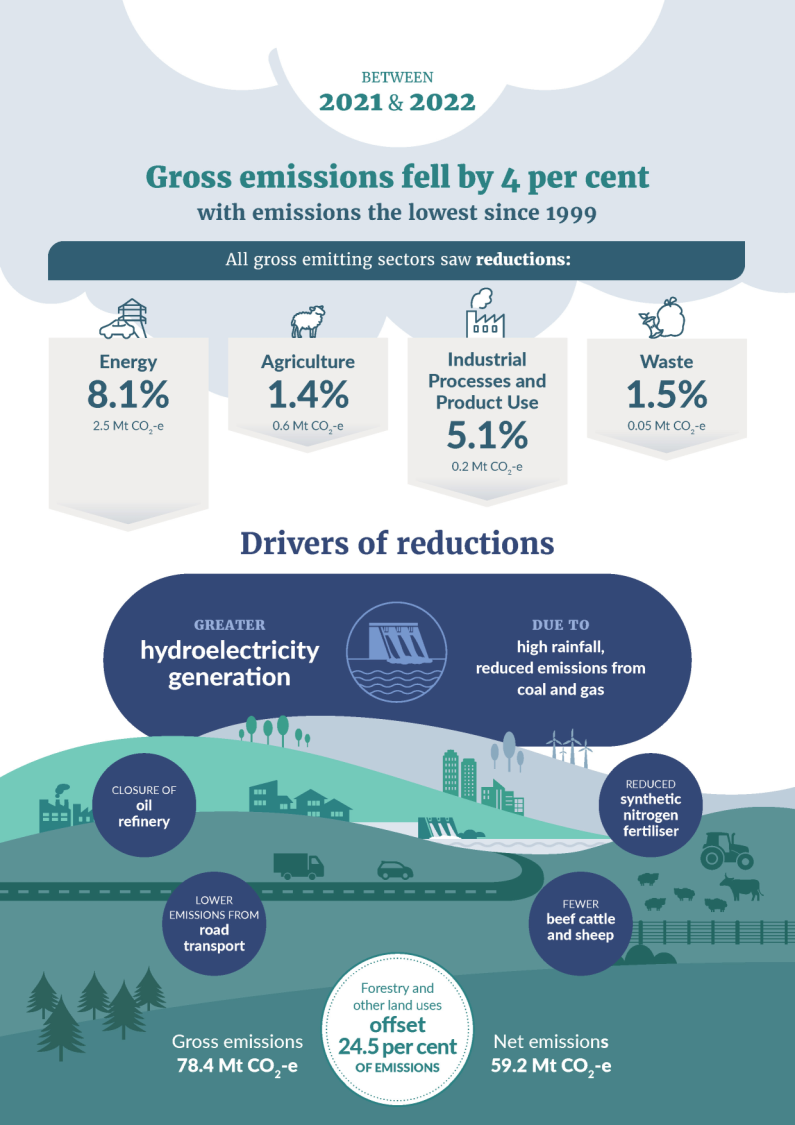
RM reform update - May 2024 Nineteenth edition
The RM Reform update is for people and organisations with an interest in the reform of the resource management system. If you would like to subscribe to these updates, please click here.

The RM Reform update is for people and organisations with an interest in the reform of the resource management system. If you would like to subscribe to these updates, please click here.
Kia ora koutou,
In the past month, the Ministry has continued to support the Government’s phased approach to resource management reform.
The Fast-track Approvals Bill was introduced to Parliament in early March and is before the Environment Committee for review.
In this phase, the Government also intends to make amendments to the Resource Management Act and national direction.
The Government recently announced a new resource management amendment bill is expected to be introduced to Parliament in May.
The proposed bill will include changes to:
Make it clear that resource consent applicants no longer need to demonstrate their proposed activities follow the Te Mana o te Wai hierarchy of obligations, as set out in the National Policy Statement for Freshwater Management (NPS-FM).
Amend stock exclusion regulations in relation to sloped land.
Repeal intensive winter grazing regulations.
Align the consenting pathway for coal mining with the pathway for other mining activities in the National Policy Statement for Indigenous Biodiversity (NPS-IB), NPS-FM, and the National Environmental Standards for Freshwater (NES-F).
Suspend the requirement for councils to identify new Significant Natural Areas (SNAs) in accordance with the NPS-IB for three years, to give enough time for a thorough review of how they operate.
Speed up the process to develop or amend national direction, such as national policy statements and national environmental standards.
We look forward to working with you on these programmes, and continuing to share updates on future resource management system reform.
Ngā mihi nui, nā
Nadeine Dommisse,
Deputy Secretary, Environment Management and Adaptation
The Government is continuing its phased approach to resource management reform.
Phase one to repeal the Natural and Built Environment Act and Spatial Planning Act completed in December 2023.
Phase Two started with the Government’s commitment to introduce a one-stop-shop approvals, consenting and permitting regime for regionally and nationally significant projects. This is expected to reduce the costs and improve the speed of such projects.
Phase Two also involves changes to the RMA to reduce regulation and unlock development, boost investment in infrastructure, housing and primary industries, while ensuring the environment is protected.
This will take the form of two bills to amend the RMA. These bills will focus on amendments to the current system that can be progressed quickly and have a short-to-medium term impact. The first bill is expected to be introduced in May 2024.
The scope of the second bill is still to be finalised. However, the Government has signalled it will include measures to increase renewable energy.
Bill 2 will also make the Medium Density Residential Standards optional rather than mandatory for councils and require councils to ratify their use.
Phase Three involves replacing the Resource Management Act with new legislation based on the enjoyment of property rights. The Government is aiming to introduce legislation to achieve this in mid-2025.
Contact rm.reform@mfe.govt.nz with any questions.
The Fast-track Approvals Bill was introduced to Parliament in early March and is before the Environment Committee for review.
Submissions on the Bill closed on 19 April.
Applications to list projects in Schedule 2 of the Bill closed on 3 May.
An Advisory Group that will make recommendations on which projects may be included in the Bill was announced by the Government on 9 April.
See New Fast Track Projects advisory group named [Beehive website].
The Government has announced it intends to change the freshwater farm plan system to make it more cost effective and practical.
The changes are intended to enable farmers and growers to find the right solutions for their farm and catchment, and to make sure the time and cost of completing a farm plan matches the level of risk.
Farm plans can be used to identify environmental risks and plan actions to manage those risks, considering property and catchment factors. The freshwater farm plan system needs to be a trusted and robust alternative to local rules and resource consents, where appropriate.
There is also work underway to integrate existing farm environment or industry assurance plans into the freshwater farm plan system, as well as the certification and auditing requirements of the system.
In the areas where the freshwater farm plan rollout has started, the Government may look at whether current requirements to complete a freshwater farm plan could be paused while improvements are developed.
The Government is planning to clarify how Te Mana o te Wai hierarchy of obligations in the National Policy Statement for Freshwater Management (NPS-FM) is applied to resource consent applications and decisions.
The aim is to ensure resource consent applicants don’t have to demonstrate how their activity adheres to the hierarchy and remove the hierarchy from council’s decision making for consents.
The Government is providing opportunities for housing development via Going for Housing Growth - a joint work programme between the Ministry of Housing and Urban Development and the Ministry for the Environment.
The two ministries are working on policy details and providing advice to ministers which aims to strike a balance between zoning for housing growth and the flexibility for councils to decide how that growth happens. There will likely be other changes as legislation gets designed.
Some councils have already completed changes to have the Medium Density Residential Standards (MDRS) in their plans. If councils want to remove these standards, they will need to show they have enough housing capacity for 30 years (as per the Housing Growth Targets).
The Government also wants to extend the National Policy Statement for Urban Development to encourage density and an increased mix of residential and business activities in some places, such as homes above shops and restaurants.
To help increase greenfield land availability, the National Policy Statement for Highly Productive Land is being reviewed by the Ministry for the Environment and the Ministry for Primary Industries.
In the coming months, the Government will introduce legislation focused on these areas. The 30-year Housing Growth Targets and the decision whether to opt out of the MDRS will be included through targeted amendments to the Resource Management Act 1991.
Work is underway to develop the second Emissions Reduction Plan (ERP2) which must be produced by the end of 2024. The plan will set-out actions needed to reduce emissions to meet the second emissions budget for the years 2026–2030. We note that this budget is also one of the nine recently announced Government targets.
The success of this plan will depend on all New Zealanders playing their part to reduce emissions; the private sector, local government, iwi and Māori, households and individuals will all have a role to play.
The Government will be seeking feedback from a range of voices and perspectives as part of this process including public consultation in the middle of the year.
Sign-up to receive updates if you would like to be notified when ERP2 consultation opens.

Between 2021 and 2022 Gross emissions fell by 4 per cent, with emissions the lowest since 1999.
Four arrows are underneath this line, one for each gross emitting sector, pointing down and proportional to the percentage reductions from each, stating:
An illustrated landscape is depicted with rolling hills; trees; wind turbines; hydroelectricity dam; housing, city and roading elements; and an agricultural scene complete with sheep and cattle.
A large bubble sits above the landscape. It states ‘Greater hydroelectricity generation, due to high rainfall, reduced emissions from coal and gas’. This bubble is the largest as it was the biggest driver for emissions reductions between 2021 and 2022.
Throughout the landscape are four text bubbles that detail the secondary drivers of emissions reductions between 2021 and 2022:
At the bottom of the landscape illustration is a separate text bubble that states ‘Forestry and other land uses offset 24.5 per cent of emissions’. This bubble is styled differently from the other bubbles to highlight this is a removal not a reduction in emissions.
Either side of this is text stating the emissions for 2022: